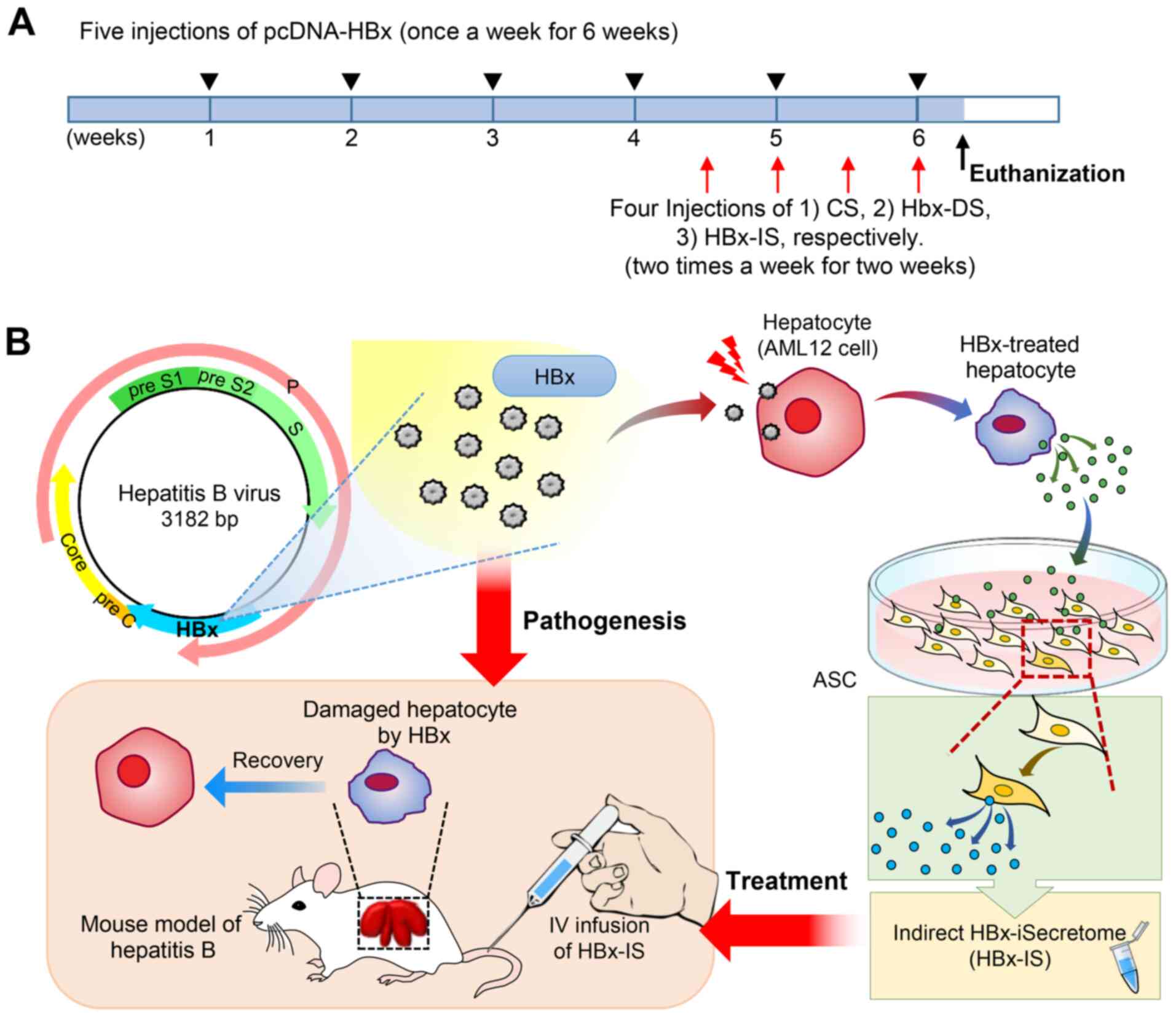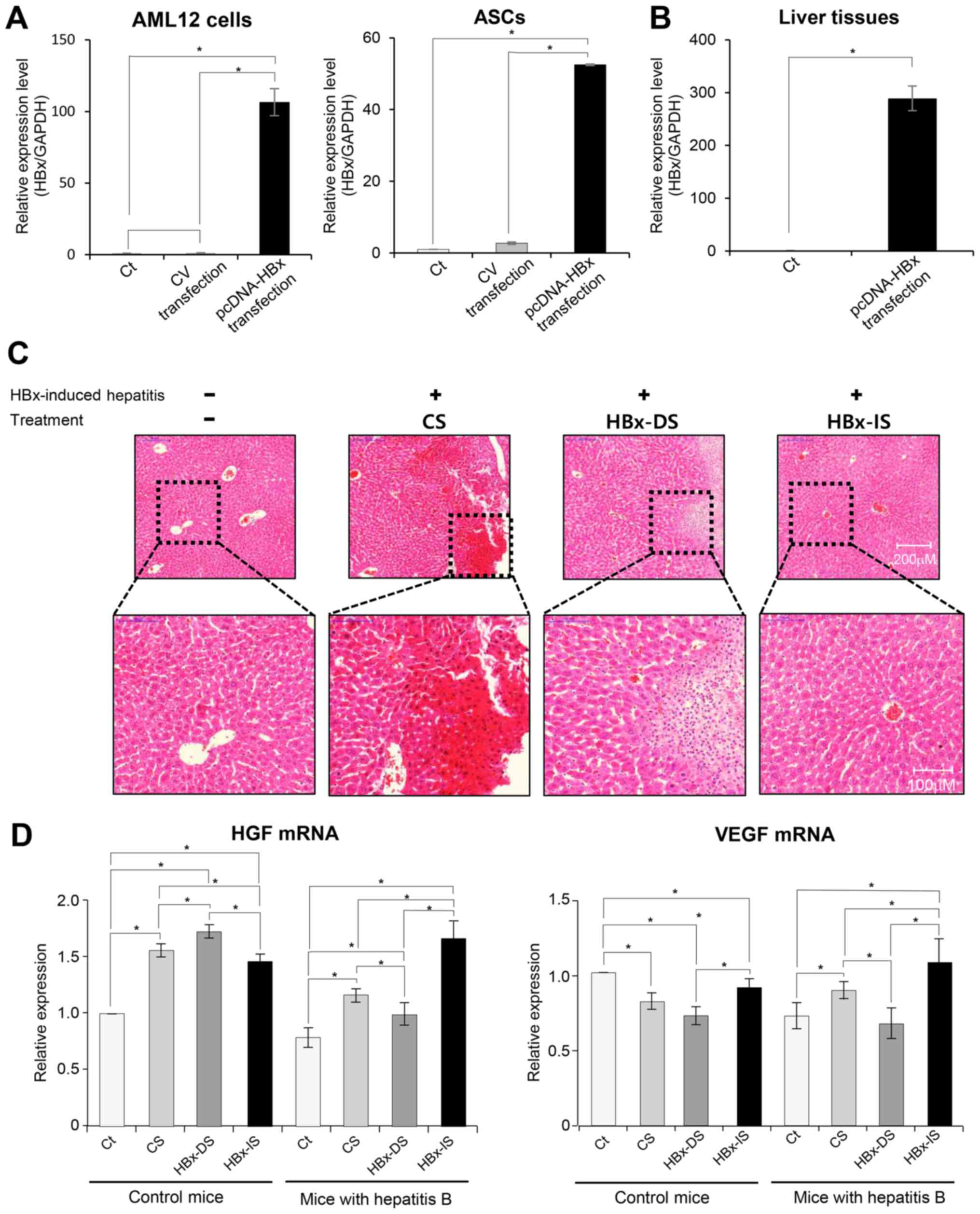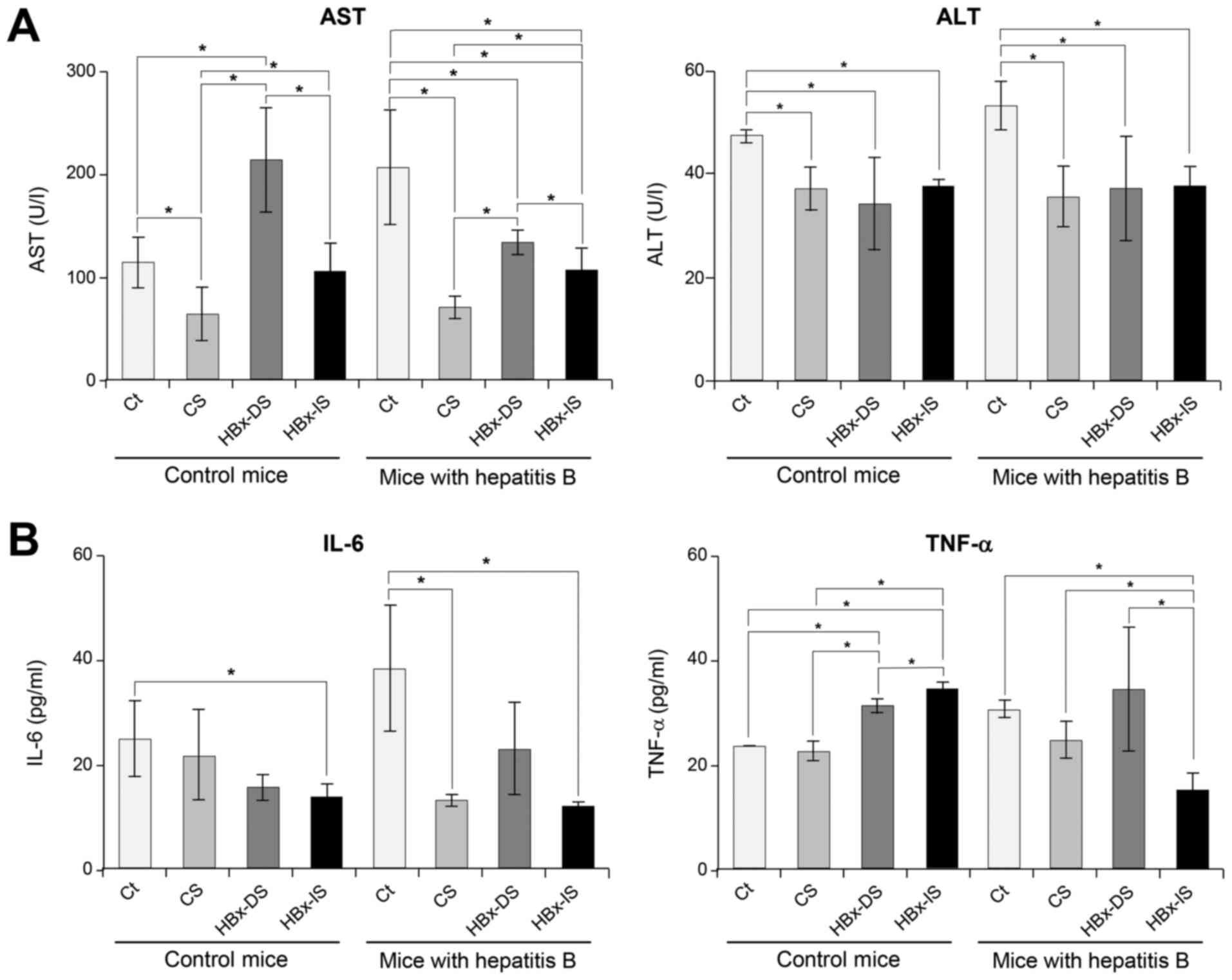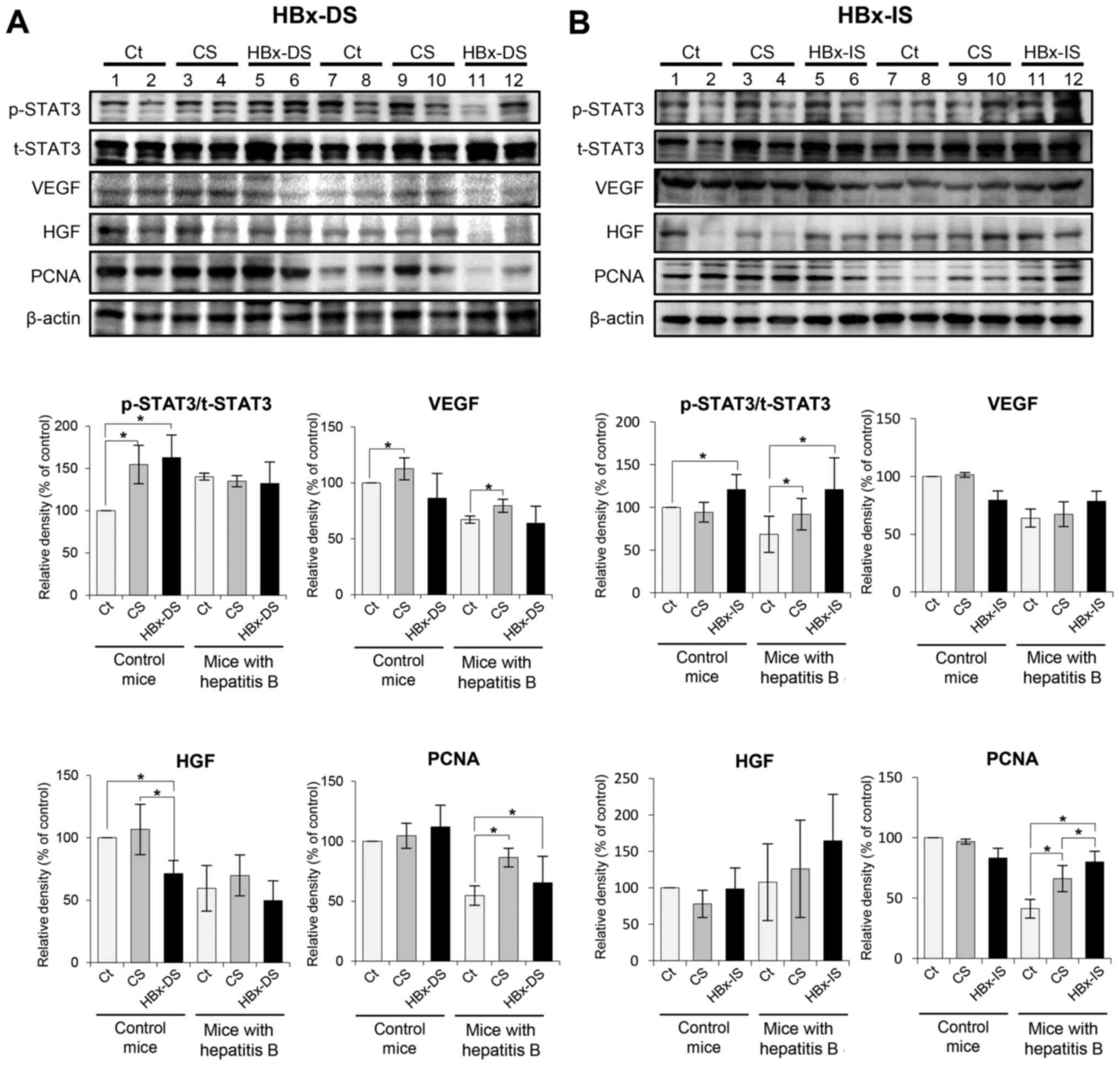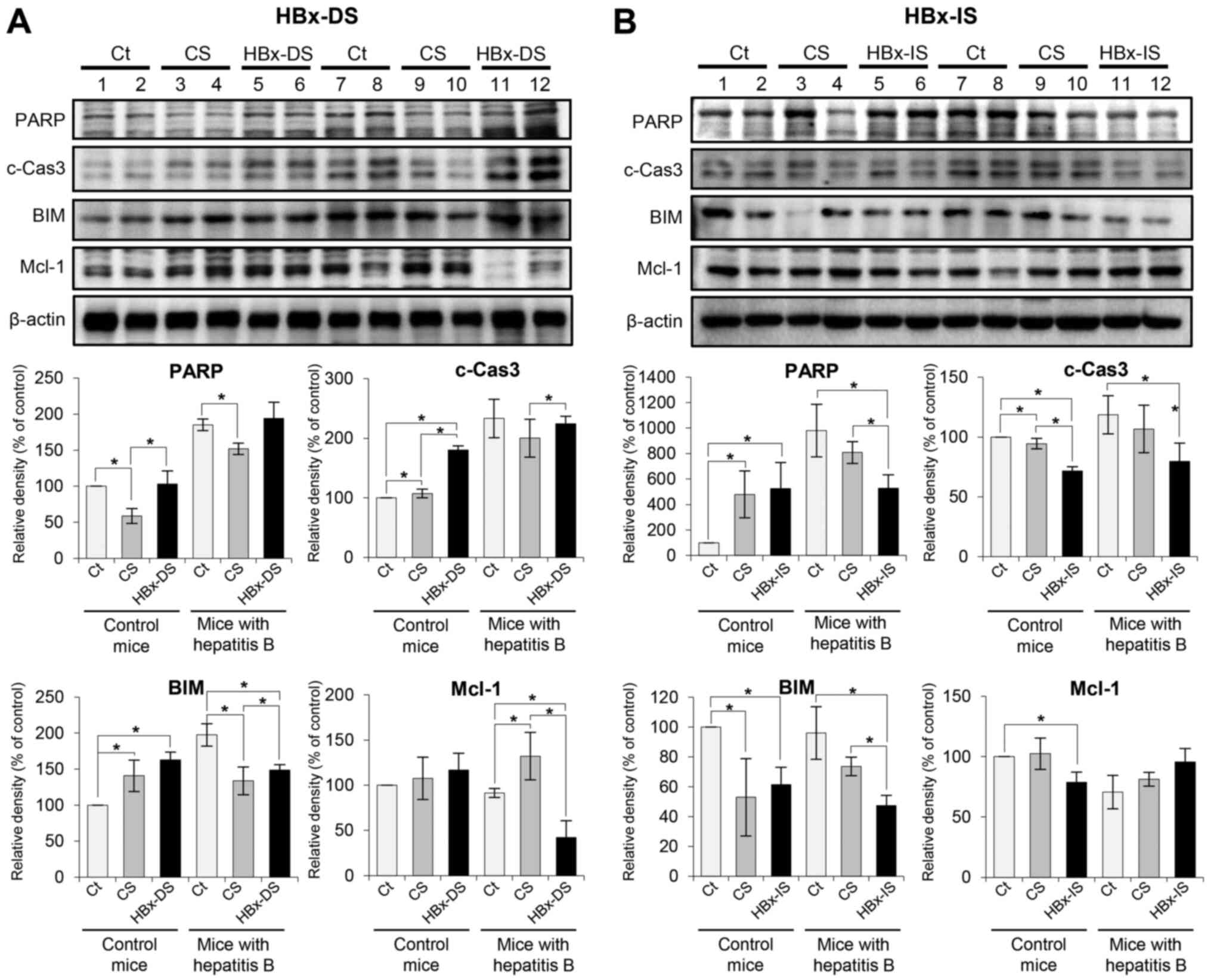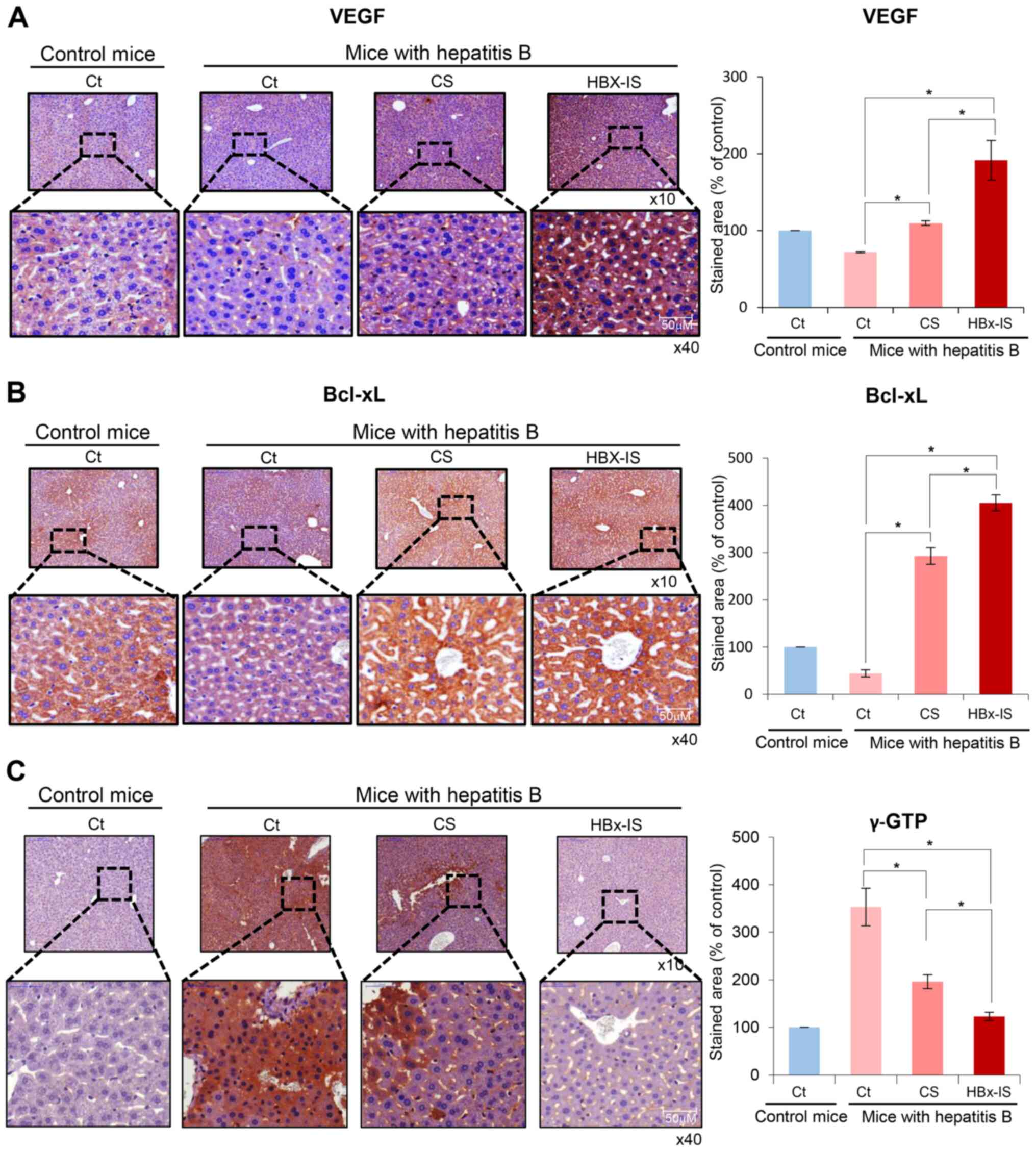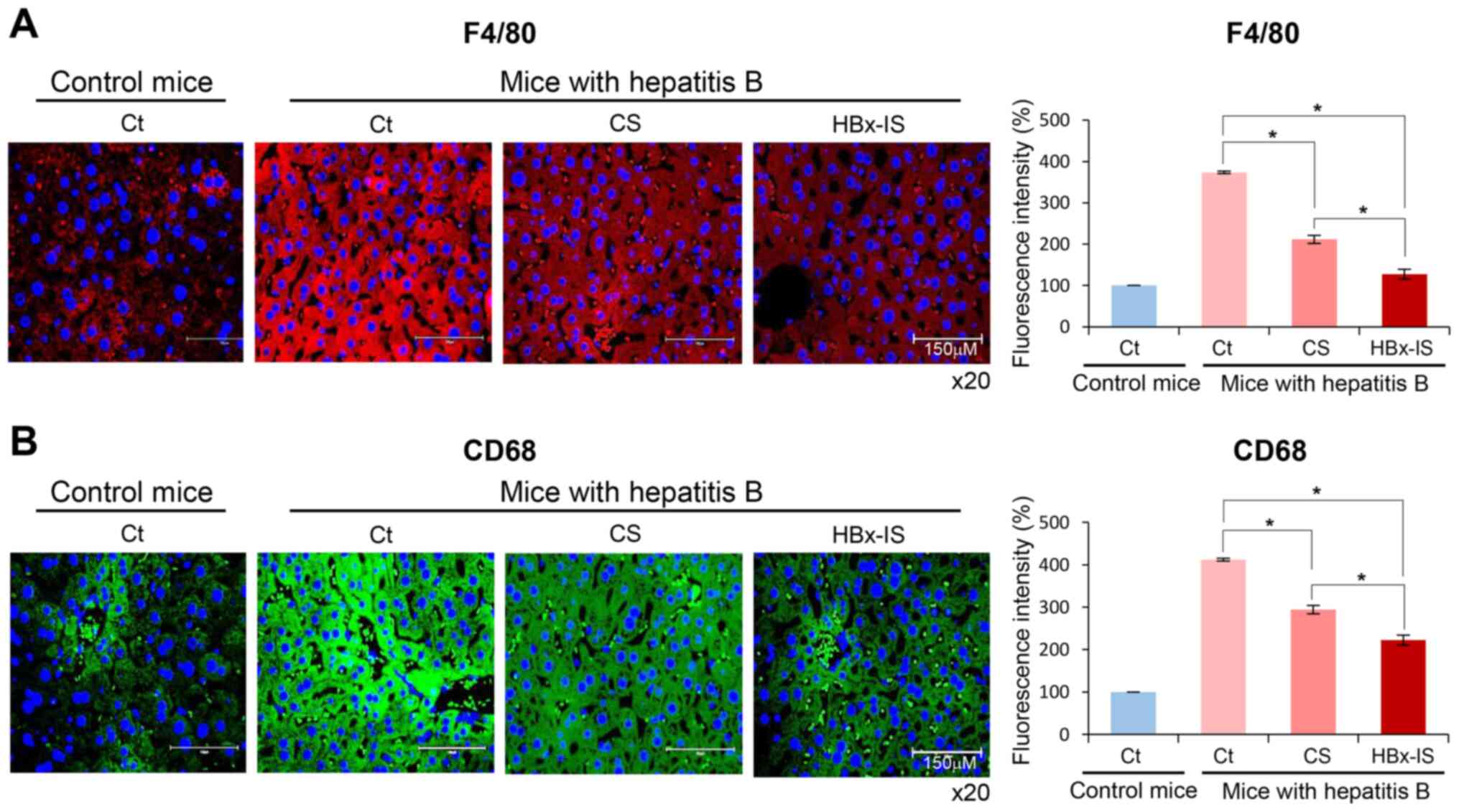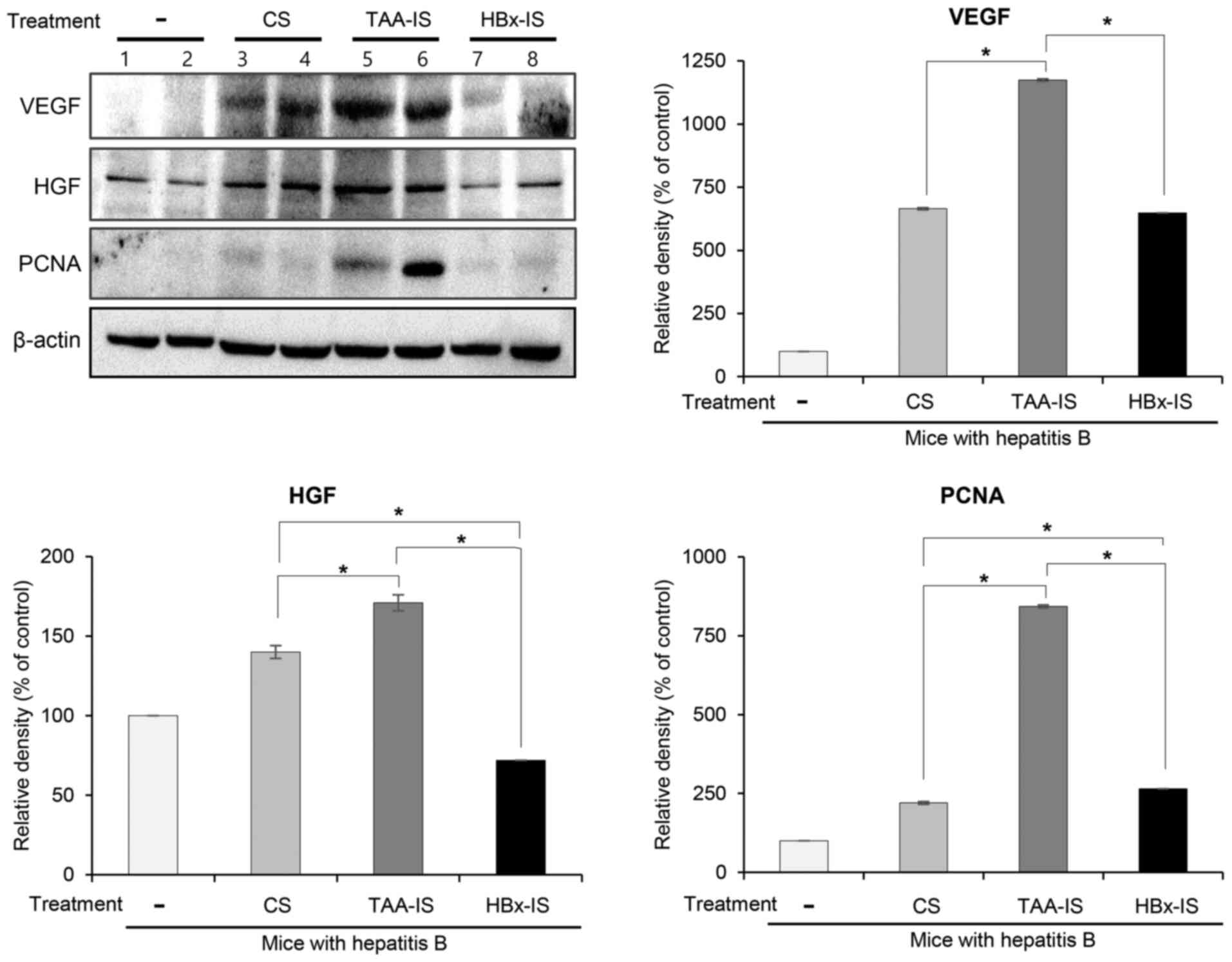|
1
|
Meirelles Lda S, Fontes AM, Covas DT and
Caplan AI: Mechanisms involved in the therapeutic properties of
mesenchymal stem cells. Cytokine Growth Factor Rev. 20:419–427.
2009. View Article : Google Scholar : PubMed/NCBI
|
|
2
|
An SY, Jang YJ, Lim HJ, Han J, Lee J, Lee
G, Park JY, Park SY, Kim JH, Do BR, et al: Milk fat globule-EGF
factor 8, secreted by mesenchymal stem cells, protects against
liver fibrosis in mice. Gastroenterology. 152:1174–1186. 2017.
View Article : Google Scholar
|
|
3
|
Makridakis M, Roubelakis MG and Vlahou A:
Stem cells: Insights into the secretome. Biochim Biophys Acta.
1834:2380–2384. 2013. View Article : Google Scholar : PubMed/NCBI
|
|
4
|
Parekkadan B, van Poll D, Suganuma K,
Carter EA, Berthiaume F, Tilles AW and Yarmush ML: Mesenchymal stem
cell-derived molecules reverse fulminant hepatic failure. PLoS One.
2:e9412007. View Article : Google Scholar : PubMed/NCBI
|
|
5
|
Paul G and Anisimov SV: The secretome of
mesenchymal stem cells: Potential implications for
neuroregeneration. Biochimie. 95:2246–2256. 2013. View Article : Google Scholar : PubMed/NCBI
|
|
6
|
Salgado AJ, Oliveira JM, Martins A,
Teixeira FG, Silva NA, Neves NM, Sousa N and Reis RL: Tissue
engineering and regenerative medicine: Past, present, and future.
Int Rev Neurobiol. 108:1–33. 2013. View Article : Google Scholar : PubMed/NCBI
|
|
7
|
Lavoie JR and Rosu-Myles M: Uncovering the
secretes of mesenchymal stem cells. Biochimie. 95:2212–2221. 2013.
View Article : Google Scholar : PubMed/NCBI
|
|
8
|
Baglio SR, Pegtel DM and Baldini N:
Mesenchymal stem cell secreted vesicles provide novel opportunities
in (stem) cell-free therapy. Front Physiol. 3:3592012. View Article : Google Scholar : PubMed/NCBI
|
|
9
|
Rubio D, Garcia S, Paz MF, De la Cueva T,
Lopez-Fernandez LA, Lloyd AC, Garcia-Castro J and Bernad A:
Molecular characterization of spontaneous mesenchymal stem cell
transformation. PLoS One. 3:e13982008. View Article : Google Scholar : PubMed/NCBI
|
|
10
|
Konala VBR, Mamidi MK, Bhonde R, Das AK,
Pochampally R and Pal R: The current landscape of the mesenchymal
stromal cell secretome: A new paradigm for cell-free regeneration.
Cytotherapy. 18:13–24. 2016. View Article : Google Scholar :
|
|
11
|
Salgado AJ, Sousa JC, Costa BM, Pires AO,
Mateus-Pinheiro A, Teixeira FG, Pinto L and Sousa N: Mesenchymal
stem cells secretome as a modulator of the neurogenic niche: Basic
insights and therapeutic opportunities. Front Cell Neurosci.
9:2492015. View Article : Google Scholar : PubMed/NCBI
|
|
12
|
Waszak P, Alphonse R, Vadivel A, Ionescu
L, Eaton F and Thebaud B: Preconditioning enhances the paracrine
effect of mesenchymal stem cells in preventing oxygen-induced
neonatal lung injury in rats. Stem Cells Dev. 21:2789–2797. 2012.
View Article : Google Scholar : PubMed/NCBI
|
|
13
|
Lee SC, Jeong HJ, Lee SK and Kim SJ:
Lipopolysaccharide preconditioning of adipose-derived stem cells
improves liver-regenerating activity of the secretome. Stem Cell
Res Ther. 6:752015. View Article : Google Scholar : PubMed/NCBI
|
|
14
|
Lee SC, Jeong HJ, Lee SK and Kim SJ:
Hypoxic conditioned medium from human adipose-derived stem cells
promotes mouse liver regeneration through JAK/STAT3 signaling. Stem
Cells Transl Med. 5:816–825. 2016. View Article : Google Scholar : PubMed/NCBI
|
|
15
|
Lee SC, Kim KH, Kim OH, Lee SK, Hong HE,
Won SS, Jeon SJ, Choi BJ, Jeong W and Kim SJ: Determination of
optimized oxygen partial pressure to maximize the liver
regenerative potential of the secretome obtained from
adipose-derived stem cells. Stem Cell Res Ther. 8:1812017.
View Article : Google Scholar : PubMed/NCBI
|
|
16
|
Noiseux N, Gnecchi M, Lopez-Ilasaca M,
Zhang L, Solomon SD, Deb A, Dzau VJ and Pratt RE: Mesenchymal stem
cells overexpressing Akt dramatically repair infarcted myocardium
and improve cardiac function despite infrequent cellular fusion or
differentiation. Mol Ther. 14:840–850. 2006. View Article : Google Scholar : PubMed/NCBI
|
|
17
|
Wang X, Zhao T, Huang W, Wang T, Qian J,
Xu M, Kranias EG, Wang Y and Fan GC: Hsp20-engineered mesenchymal
stem cells are resistant to oxidative stress via enhanced
activation of Akt and increased secretion of growth factors. Stem
Cells. 27:3021–3031. 2009.PubMed/NCBI
|
|
18
|
Mohammadzadeh M, Halabian R, Gharehbaghian
A, Amirizadeh N, Jahanian-Najafabadi A, Roushandeh AM and Roudkenar
MH: Nrf-2 overexpression in mesenchymal stem cells reduces
oxidative stress-induced apoptosis and cytotoxicity. Cell Stress
Chaperones. 17:553–565. 2012. View Article : Google Scholar : PubMed/NCBI
|
|
19
|
Kim OH, Hong HE, Seo H, Kwak BJ, Choi HJ,
Kim KH, Ahn J, Lee SC and Kim SJ: Generation of induced secretome
from adipose-derived stem cells specialized for disease-specific
treatment: An experimental mouse model. World J Stem Cells.
12:70–86. 2020. View Article : Google Scholar : PubMed/NCBI
|
|
20
|
Livak KJ and Schmittgen TD: Analysis of
relative gene expression data using real-time quantitative PCR and
the 2(T)(-Delta Delta C) method. Methods. 25:402–408. 2001.
View Article : Google Scholar
|
|
21
|
Li X, Liu G, Chen M, Yang Y, Xie Y and
Kong X: A novel hydrodynamic injection mouse model of HBV genotype
C for the study of HBV biology and the anti-viral activity of
lamivudine. Hepat Mon. 16:e344202016. View Article : Google Scholar : PubMed/NCBI
|
|
22
|
Ling LR, Zheng DH, Zhang ZY, Xie WH, Huang
YH, Chen ZX, Wang XZ and Li D: Effect of HBx on inflammation and
mitochondrial oxidative stress in mouse hepatocytes. Oncol Lett.
19:2861–2869. 2020.PubMed/NCBI
|
|
23
|
Chierchia A, Chirico N, Boeri L, Raimondi
I, Riva GA, Raimondi MT, Tunesi M, Giordano C, Forloni G and Albani
D: Secretome released from hydrogel-embedded adipose mesenchymal
stem cells protects against the Parkinson's disease related toxin
6-hydroxydopamine. Eur J Pharm Biopharm. 121:113–120. 2017.
View Article : Google Scholar : PubMed/NCBI
|
|
24
|
Driscoll J and Patel T: The mesenchymal
stem cell secretome as an acellular regenerative therapy for liver
disease. J Gastroenterol. 54:763–773. 2019. View Article : Google Scholar : PubMed/NCBI
|
|
25
|
Eleuteri S and Fierabracci A: Insights
into the secretome of mesenchymal stem cells and its potential
applications. Int J Mol Sci. 20:45972019. View Article : Google Scholar :
|
|
26
|
Li N, Sarojini H, An J and Wang E:
Prosaposin in the secretome of marrow stroma-derived neural
progenitor cells protects neural cells from apoptotic death. J
Neurochem. 112:1527–1538. 2010. View Article : Google Scholar : PubMed/NCBI
|
|
27
|
Rodríguez-Suárez E, Gonzalez E, Hughes C,
Conde-Vancells J, Rudella A, Royo F, Palomo L, Elortza F, Lu SC,
Mato JM, et al: Quantitative proteomic analysis of
hepatocyte-secreted extracellular vesicles reveals candidate
markers for liver toxicity. J Proteomics. 103:227–240. 2014.
View Article : Google Scholar : PubMed/NCBI
|
|
28
|
Prado N, Marazuela EG, Segura E,
Fernández-García H, Villalba M, Théry C, Rodriguez R and Batanero
E: Exosomes from bronchoalveolar fluid of tolerized mice prevent
allergic reaction. J Immunol. 181:1519–1525. 2008. View Article : Google Scholar : PubMed/NCBI
|
|
29
|
Bobis S, Jarocha D and Majka M:
Mesenchymal stem cells: Characteristics and clinical applications.
Folia Histochem Cytobiol. 44:215–230. 2006.
|
|
30
|
Filip S, Mokrý J, English D and Vojácek J:
Stem cell plasticity and issues of stem cell therapy. Folia Biol
(Praha). 51:180–187. 2005.
|
|
31
|
Frisén J: Stem cell plasticity? Neuron.
35:415–418. 2002. View Article : Google Scholar : PubMed/NCBI
|
|
32
|
Chen HS, Kaneko S, Girones R, Anderson RW,
Hornbuckle WE, Tennant BC, Cote PJ, Gerin JL, Purcell RH and Miller
RH: The woodchuck hepatitis virus X gene is important for
establishment of virus infection in woodchucks. J Virol.
67:1218–1226. 1993. View Article : Google Scholar : PubMed/NCBI
|
|
33
|
Zoulim F, Saputelli J and Seeger C:
Woodchuck hepatitis virus X protein is required for viral infection
in vivo. J Virol. 68:2026–2030. 1994. View Article : Google Scholar : PubMed/NCBI
|
|
34
|
Choe BH: Hepatitis B virus: Pathogenesis,
molecular diagnosis, and clinical significance of mutation. Korean
J Pediatr Gastroenterol Nutr. 10:51–65. 2007.
|
|
35
|
Neuveut C, Wei Y and Buendia MA:
Mechanisms of HBV-related hepatocarcinogenesis. J Hepatol.
52:594–604. 2010. View Article : Google Scholar : PubMed/NCBI
|
|
36
|
Slagle BL and Bouchard MJ: Role of HBx in
hepatitis B virus persistence and its therapeutic implications.
Curr Opin Virol. 30:32–38. 2018. View Article : Google Scholar : PubMed/NCBI
|
|
37
|
Clippinger AJ, Gearhart TL and Bouchard
MJ: Hepatitis B virus X protein modulates apoptosis in primary rat
hepatocytes by regulating both NF-kappaB and the mitochondrial
permeability transition pore. J Virol. 83:4718–4731. 2009.
View Article : Google Scholar : PubMed/NCBI
|















